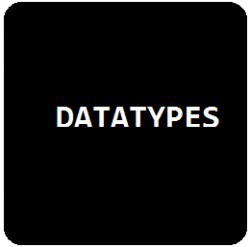
Primitive variables local variables will store in stack.
Datatypes defines how to store variables value in stack memory.
DataType Explanation
byte The memory size allocated to byte is 8 bits.
range from -128 to 127 (total of 256 numbers)
useful when working with a stream of data from a network or file.
Ex. uploading large file on server byte by byte.
declaration - byte b, c;
int Range from -2,147,483,648 to 2,147,483,647
Represents a total of 4,294,967,296 numbers.
A 32-bit (4-byte) integer value
short Memory size allocated to short is 16 bits.
default value for short is zero -'0
Range -32768 to -32767
long A 64-bit (8-byte) integer value
float A 32-bit (4-byte) floating-point value
declaration - float a = 2.45f;
double A 64-bit (8-byte) floating-point value
char Memory size allocated to char is 16 bits.
default value for char is blank space ('\u0000').
declaration - char b ='z';
boolean A true or false value
Default value for boolean is 'false'.
declaration - boolean a =true;
public class Datatype_Default_Value {
static boolean bool;
static byte by;
static char ch;
static double d;
static float f;
static int i;
static long l;
static short sh;
static String str;
public static void main(String[] args) {
System.out.println("bool = " + bool);
System.out.println("by = " + by);
System.out.println("ch = " + ch);
System.out.println("d = " + d);
System.out.println("f = " + f);
System.out.println("i = " + i);
System.out.println("l = " + l);
System.out.println("sh = " + sh);
System.out.println("str = " + str);
}
}
bool = false
by = 0
ch =
d = 0.0
f = 0.0
i = 0
l = 0
sh = 0
str = null
With the use of Wrapper class in java we can convert primitive datatypes into object and object into primitive datatypes.
Java is an object-oriented language and take everything as an object. The primitive data types are not objects they do not belong to any class.
Whenever, the data type is required as an object then we will use wrapper classes to convert primitive datatypes into object and object into primitive datatypes.
public class Wrapper_Classes {
public static void main(String[] argv) {
Boolean refBoolean = new Boolean(true);
// return primitive boolean value of Boolean object
boolean bool = refBoolean.booleanValue();
System.out.println("bool = " + bool);
Byte refByte = new Byte((byte) 123);
// return primitive byte value of Byte object
byte b = refByte.byteValue();
System.out.println("b = " + b);
Character refChar = new Character('x');
// return value of Character object
char c = refChar.charValue();
System.out.println("c = " + c);
Short refShort = new Short((short) 123);
// return primitive sort value of Short object
short s = refShort.shortValue();
System.out.println("s = " + s);
Integer refInt = new Integer(123);
// return primitive int value of Integer object
int i = refInt.intValue();
System.out.println("i = " + i);
Long refLong = new Long(123L);
// return primitive long value of Long object
long l = refLong.longValue();
System.out.println("l = " + l);
Float refFloat = new Float(12.3F);
// return primitive float value of Float object
float f = refFloat.floatValue();
System.out.println("f = " + f);
Double refDouble = new Double(12.3D);
// return primitive double value of Double object
double d = refDouble.doubleValue();
System.out.println("d = " + d);
}
}
bool = true
b = 123
c = x
s = 123
i = 123
l = 123
f = 12.3
d = 12.3
Showing java primitive datatypes minimum and maximum values.
public class Min_Max_Value_Datatypes {
public static void main(String[] args) {
System.out.println("Byte.MIN = " + Byte.MIN_VALUE);
System.out.println("Byte.MAX = " + Byte.MAX_VALUE);
System.out.println("Short.MIN = " + Short.MIN_VALUE);
System.out.println("Short.MAX = " + Short.MAX_VALUE);
System.out.println("Integer.MIN = " + Integer.MIN_VALUE);
System.out.println("Integer.MAX = " + Integer.MAX_VALUE);
System.out.println("Long.MIN = " + Long.MIN_VALUE);
System.out.println("Long.MAX = " + Long.MAX_VALUE);
System.out.println("Float.MIN = " + Float.MIN_VALUE);
System.out.println("Float.MAX = " + Float.MAX_VALUE);
System.out.println("Double.MIN = " + Double.MIN_VALUE);
System.out.println("Double.MAX = " + Double.MAX_VALUE);
}
}
Byte.MIN = -128
Byte.MAX = 127
Short.MIN = -32768
Short.MAX = 32767
Integer.MIN = -2147483648
Integer.MAX = 2147483647
Long.MIN = -9223372036854775808
Long.MAX = 9223372036854775807
Float.MIN = 1.4E-45
Float.MAX = 3.4028235E38
Double.MIN = 4.9E-324
Double.MAX = 1.7976931348623157E308